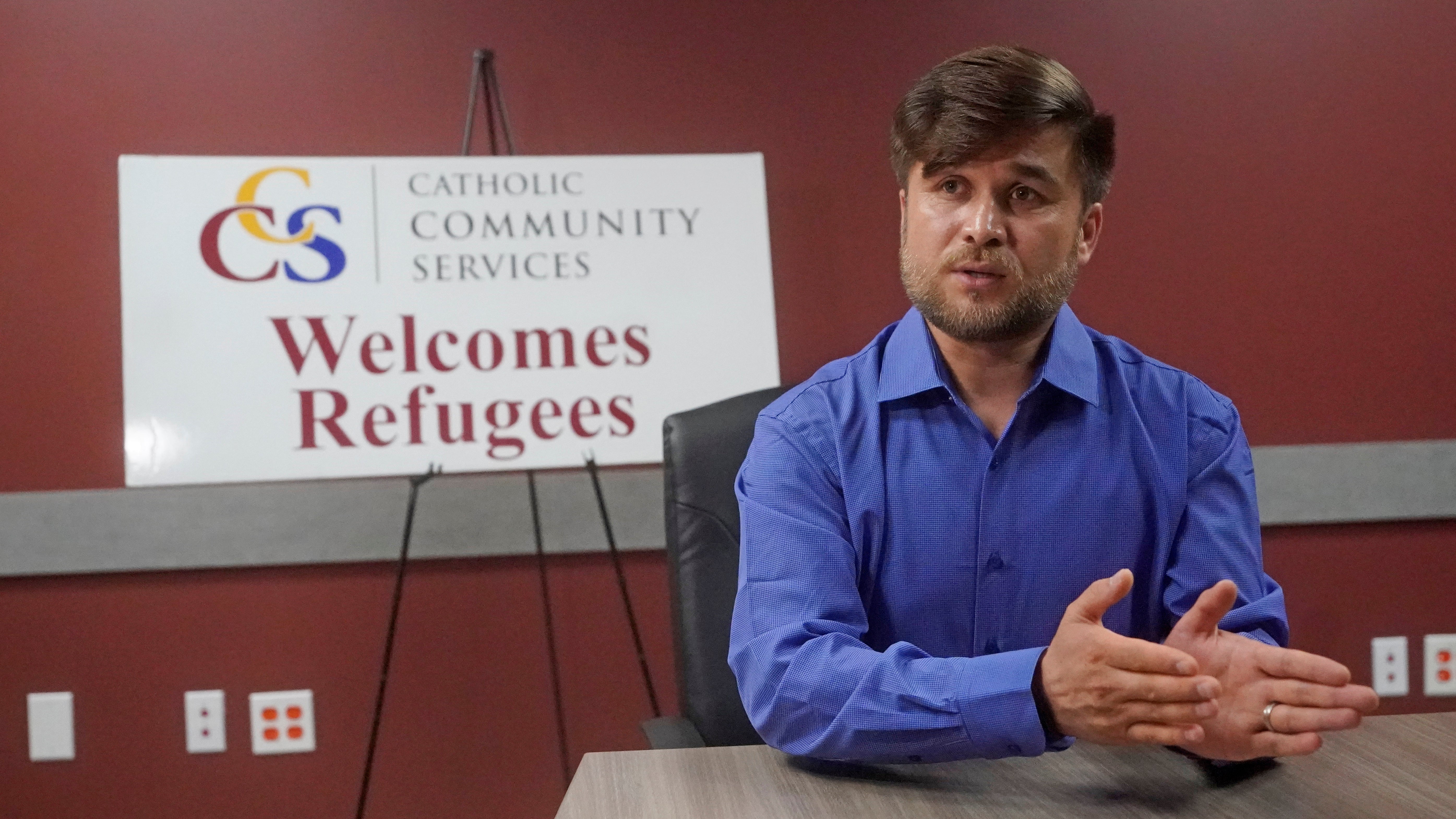1st Afghan refugee since Taliban takeover arrives in Utah
The first Afghan refugee to arrive in Utah since the nation's swift takeover by the Taliban is a man who built a life as an air-traffic controller in Kabul before he had to flee

Your support helps us to tell the story
From reproductive rights to climate change to Big Tech, The Independent is on the ground when the story is developing. Whether it's investigating the financials of Elon Musk's pro-Trump PAC or producing our latest documentary, 'The A Word', which shines a light on the American women fighting for reproductive rights, we know how important it is to parse out the facts from the messaging.
At such a critical moment in US history, we need reporters on the ground. Your donation allows us to keep sending journalists to speak to both sides of the story.
The Independent is trusted by Americans across the entire political spectrum. And unlike many other quality news outlets, we choose not to lock Americans out of our reporting and analysis with paywalls. We believe quality journalism should be available to everyone, paid for by those who can afford it.
Your support makes all the difference.As a member of the Hazara minority in Afghanistan Azim Kakaie would have had no access to higher education under the Taliban Instead, over the past two decades he turned a love for aviation into an air-traffic control job in Kabul, he said Thursday.
Kakaie was working at the airport as the swift takeover by the Taliban engulfed Kabul last week. He had to board an evacuation plane before his family could join him. This week he became the first Afghan refugee to arrive in Utah since the withdrawal of U.S. troops.
“I had to abandon everything that I had made in 34 years of my life. Start from zero,” he said.
Kakaie boarded a plane quickly because he was already at the airport, but his wife had to try for days, enduring beatings from Taliban fighters at checkpoints that blocked her from the airport, he said. Finally, on the fourth day she was able to get through along with two other relatives — just 30 minutes before a devastating suicide bombing killed 13 U.S. troops and more than 160 Afghans.
“Those young American heroes,” he said. “That is going to be in my heart for the rest of my life.”
She’s now in Germany, along with her mother and his brother, who hope to join him in Salt Lake City He landed late Wednesday night in Utah's capitol, where the jagged mountains and desert climate reminded him of home. He’s looking forward to building a life in the U.S. and finding a job, but he's still concerned for his family back home, including his mother.
“I’m worried a lot. I cannot say when I am by myself, how much I cry. I don’t know what’s going to happen. That’s the only time that I’m deep under pressure,” he said.
The U.S. and its coalition partners have evacuated more than 100,000 people from Afghanistan since the airlift began Aug. 14, including American citizens and many Afghans who helped the U.S. during the 20-year war.
About 200 Afghan refugees are expected to eventually be resettled in Utah, where there is already an Afghan community of a few thousand people, said Aden Batar, director of migration and refugee services for Catholic Community Services in Utah.
The resettlement effort has public support from Republican Gov. Spencer Cox, who cited the historical migration of members of the conservative state’s predominant faith, The Church of Jesus Christ of Latter-day Saints, as he asked the Biden administration to send refugees there.